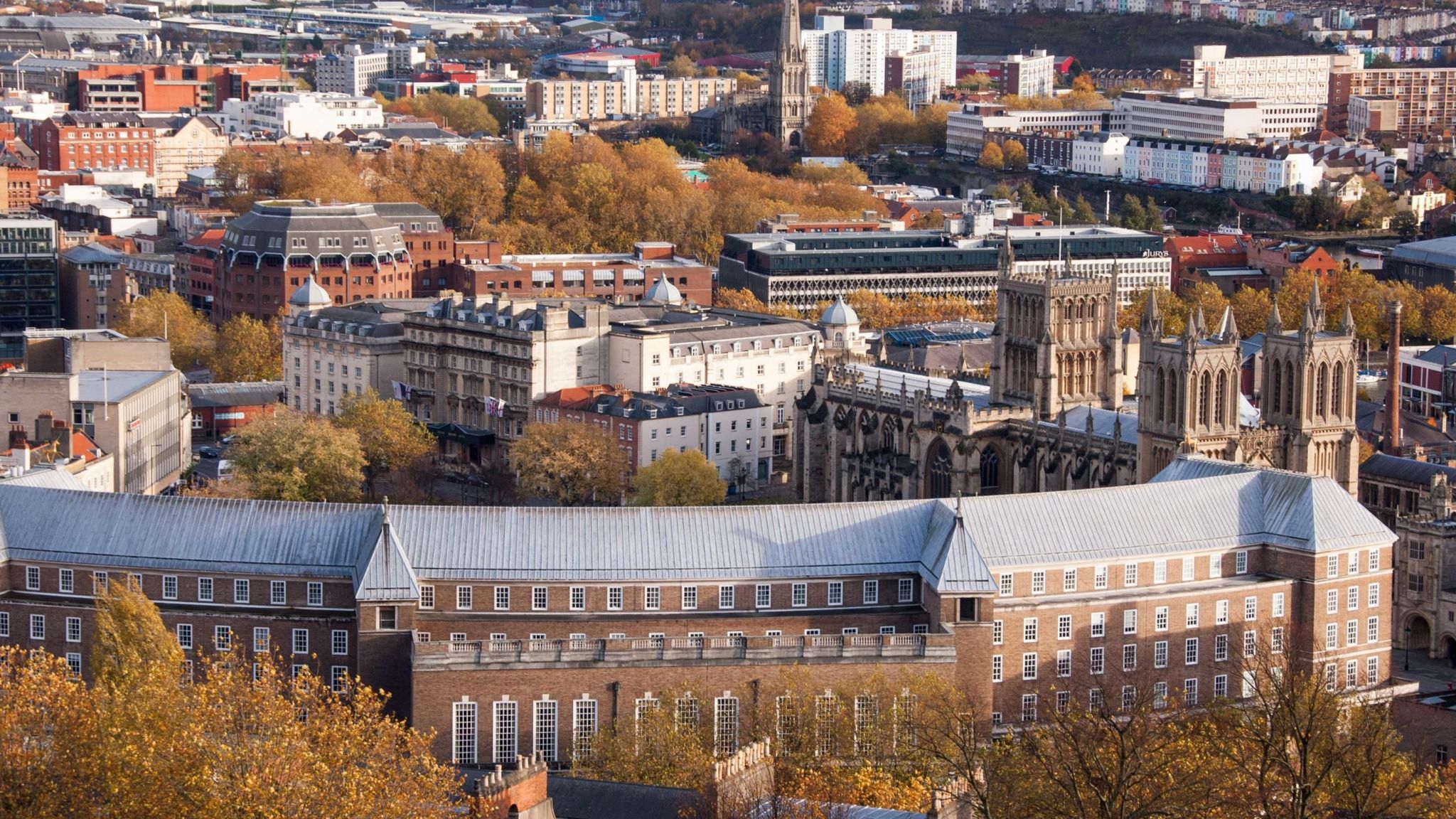Bristol Council elections: All you need to know

The fight is on for control of City Hall in Bristol
- Published
Residents in Bristol will have the opportunity to vote for their next local councillor in May, and in doing so help decide who will run Bristol City Council.
The council is in charge of waste, filling potholes and providing social care, amongst a number of other things.
This election is perhaps more significant than in recent years, as the city moves to a new way of governing that will see the mayor replaced by a committee system.
Here are a few things you might want to know about the Bristol election:
Who can I vote for?
Bristol has 70 council seats up for election spread across 34 areas of the city or “wards”.
Most wards are represented by two councillors, but some, like Hotwells and Harbourside have just one.
Others, like Avonmouth and Lawrence Weston, are represented by three councillors.
Currently, the Green Party have the most councillors with 25. Labour has the second largest with 23.
Why should I vote?
History tells us most people do not vote in local elections. Turnout in Bristol was 45% in 2016, and 41% in 2021.
But local councils have many responsibilities that probably touch on your life in some way.
They manage waste disposal, are responsible for local transport, the maintenance of roads and pavements, running the library service, parks and green spaces, as well as planning applications.
All of these endeavours pale in significance in terms of cost and resource however when compared to adult and children’s social care – also the responsibility of local councils.
Bristol spends more money in this area than any other, and will continue to do so after these elections.
Meanwhile the authority is dependent on its funding from council tax, business rates, and also central government.
Bristol has managed to avoid some of the financial crises of other local councils, however in recent years it has cut millions of pounds from various departments and services in order to balance its books.
This is a scenario that will continue whoever is elected to run the authority from May.
Marvin Rees is the current mayor - but the role disappears after the elections
What is happening to the mayor?
Following a referendum in 2022, Bristol voted to abolish the post of a directly elected mayor in favour of a so-called committee-system.
It means Labour's Marvin Rees will be the city’s last elected mayor when his term of office ends (unless the post is rekindled in the future).
His tenure, like that of his predecessor George Ferguson, has proved divisive.
Mr Rees cancelled a publicly-funded city centre arena project in 2018, and was thrust into the global spotlight after protestors pulled down a statue of Edward Colston during Black Lives Matter protests in 2020.
His bid to move to the House of Commons failed when Labour members did not chose him as their candidate in the newly-formed seat of Bristol North-East.
However he has not ruled out a move into the House of Lords, should the opportunity arise.
Whilst his legacy will be debated, he made history as the first elected Black Mayor in the UK, and the first of any major city in Europe, in the place he was born and raised.
What is a committee system?
Once the role of mayor has gone, Bristol will be run using a committee system.
This means decisions will be made by several different groups or “committees”, made up of councillors.
Each committee will have a different policy area, like housing, transport and adult social care.
The political make-up of these committees will reflect the overall make-up of the council, which is why becoming a councillor in Bristol in 2024 is more significant than it was in the past two elections.
Councillors will have more of a say in running the city, in a system that is meant to be more cooperative.
Unless one party wins an outright majority (36 seats or more) it means the different political groups will have to collaborate and, to a certain extent, share power, something that has traditionally proved a struggle.
Polling stations will open at 07:00 across the city
When is the vote?
Voting takes place on Thursday 2 May between 07:00 and 22:00 BST, although postal votes can be cast before then.
If you are planning to vote in person you will need to take identification, as per the new rules introduced last year.
Counting will take place the next day, with the final results due sometime in the late afternoon or early evening on Friday 3 May.